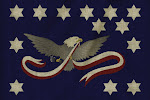Ahh, Prohibition. When you’re having a rough day, you can always count on it to brighten things up knowing that people had it a lot tougher 80-90 years ago. At least in this day and age, you can go down to any corner bar and drink your troubles away.
Alcohol during the early years of prohibition was treated very similarly to how California handles marijuana today. Alcohol was illegal, but there was a work around. It was called the doctor’s office. Booze was only legal if you had a doctor's prescription, and it didn't take long before doctors were writing scripts for everything from back pain to a paper cut. Just like pot today, alcohol was the cure for everything.

Of course we all know the truth. Everybody knows that for every 100 prescriptions that some California wack job writes for pot only maybe one is for something legitimate, like glaucoma. Personally I think the Government should just legalize it already and then tax the shit out of it. But that's a another subject for another realm of the blogosphere.

But it does relate back to prohibition and this day. With all the prescriptions for liquor, and the booze industry actually making more money than they did prior to prohibition, it didn't take long for President Harding to realize that his mother-in-law's weekly drunken nude stumble through the Rose Garden had little to do with easing the pain of her bunions.
So on November 23rd, 1921, President Harding signed the Willis-Campbell Act (also known as the anti-beer bill), which forbade doctors from prescribing beer and liquor for medicinal purposes. So no more booze for Grandma and here sore hip. No more booze for Aunt May and her chronic depression. No more booze for Uncle Jack and his addiction to ...booze. No more fun for anybody.

According to Wikipedia, the most reliable source for anything on the interwebs, "The Act kept in force all anti-liquor tax laws that had been in place prior to the passage of the Volstead Act in 1919, giving authorities to right to choose whether or not to prosecute offenders under prohibition laws or revenue laws, but at the same time guaranteeing bootleggers that they would not be prosecuted in both ways." I guess I could take some time to explain what that all means, but really that's too much work for my brain on a Monday. You should be lucky I'm writing this at all, given my current condition.




No comments:
Post a Comment